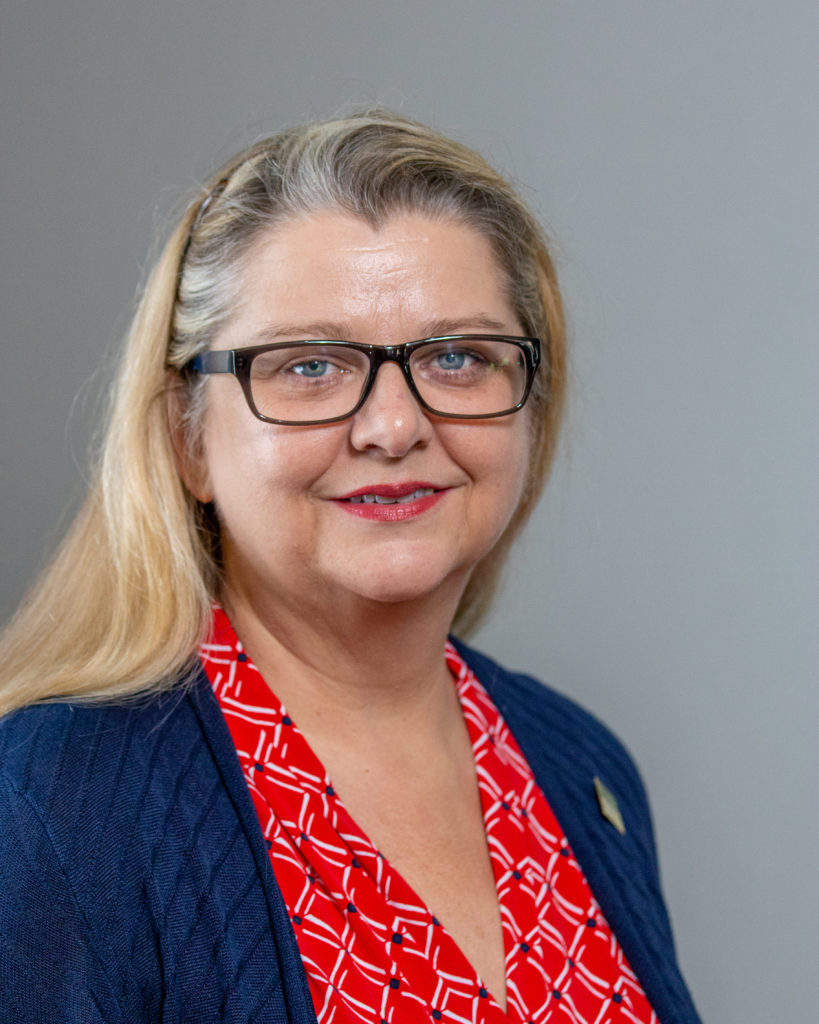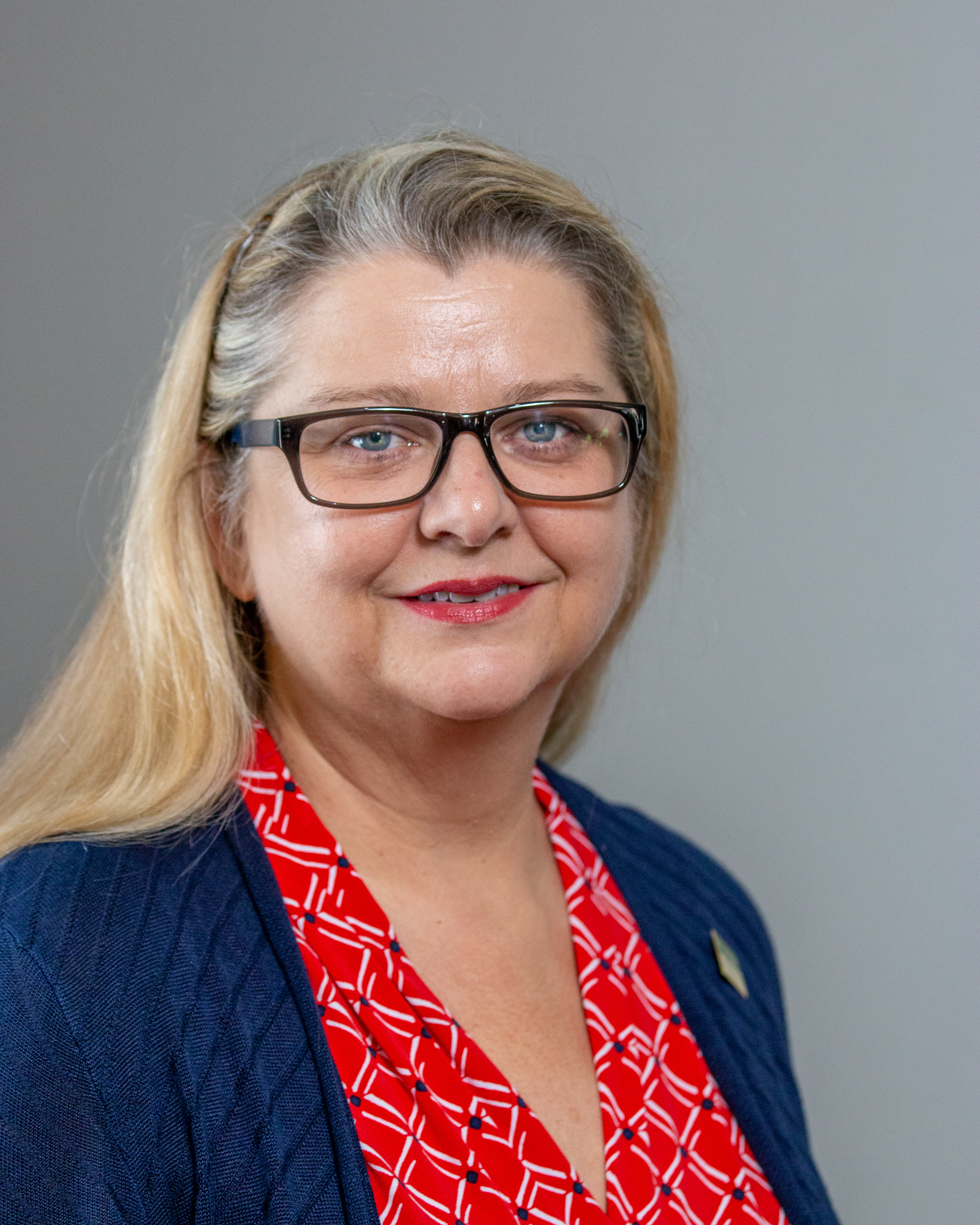
Longstanding USF St. Petersburg faculty member Dr. Deanna Michael becomes a chair in College of Education in Tampa Sept. 20. Courtesy of USF.
By James Bennett III
A prominent professor at USF St. Petersburg has been named a department chair at the College of Education in Tampa.
But Deanna Michael said she will remain on the education faculty in St. Petersburg, where she teaches two classes, and spend a majority of her time here.
The department chair role in Tampa means she gets both a promotion and the chance to stay in a university system that she has grown to love, she said.
When the opportunity in Tampa materialized, she said, “I was like, ‘I get to stay. I get to stay in St. Petersburg. I get to stay with the students I absolutely adore. I get to stay with my friends. And I get to work with my friends in Tampa.’ What’s better?”
Michael, an associate professor, is also a prominent player in the governance of the USF system.
As president of the USF System Faculty Council, which works with the faculty senates on the three campuses, Michael serves on the university system’s 13-member Board of Trustees.
Her stint as a trustee was supposed to end in August, Michael said, but it was extended so she could help guide the three campuses through the consolidation process.
Michael’s new role on the Tampa campus comes at a time of uncertainty for the College of Education in St. Petersburg.
Under the rules of the regional agency that accredits USF, the consolidated university can have only one college of education and one dean. And both will be in Tampa.
St. Petersburg’s college apparently will become a school or schools offering education courses with a particular focus.
The last dean of St. Petersburg’s College of Education, Dr. Allyson Watson, served for only two years before leaving last summer to work at Florida A&M University.
Dr. Brenda Walker, who spent 28 years on the education faculty in Tampa, was named to replace Watson, but with a different title – interim associate dean.
Michael, who assumed her new role last week, said the College of Education in St. Petersburg is not large enough to have chair positions. To achieve a chair position, she said, she worried that she would have to move out of state.
The chair role in Tampa means she can stay, she said.
There are four chair positions in the large College of Education in Tampa, Michael said.
Michael’s new responsibilities include ensuring the classes offered to students will count toward their degrees, making sure instructors are qualified for each class they teach and checking whether faculty members are taking on an adequate workload.
Michael said she is also tasked with communicating the priorities of the education leaders on both campuses to other faculty members.
On the St. Petersburg campus, that part of the job can be as simple as going door to door or stopping faculty members in the hallway to remind them when to order textbooks.
For faculty members who work at the Tampa campus or work remotely, she said, she will often have to rely on email.
Michael said the leaders on the two campuses are still working out how she should divvy up her services and research, but she will still spend the majority of her time at the St. Petersburg.
“I get the best of both worlds,” Michael said. “It’s not very often that you get a situation where you’re made an offer and you respect everyone you’re working with. It just doesn’t happen. And so because of that, because of other leaders I could trust and their guiding me and their helping me. It was the opportune moment.”
Michael’s specialty is education policy at all levels of American government, particularly racial desegregation policies in the 1960s and 1970s. In 2008, she published a book on former President Jimmy Carter and his education policy-making.
As her roles on the System Faculty Council and Board of Trustees wind down, she said she looks forward to using the extra time writing a book and some articles and attending international conferences on education.
Michael sounded optimistic that the consolidation process won’t steamroll the St. Petersburg campus.
“What’s important is paying attention to committee membership and the representation of faculty,” Michael said. “We don’t know the structure yet. So what we’ve got to do is, get as far as we can go, and then have plan A, plan B, plan C, but that all are fair or equitable.”
“I know everybody involved in the constitutional rewrite is listening to one another,” she said. “Yeah, they may not always agree, but they’re all listening to one another.”



